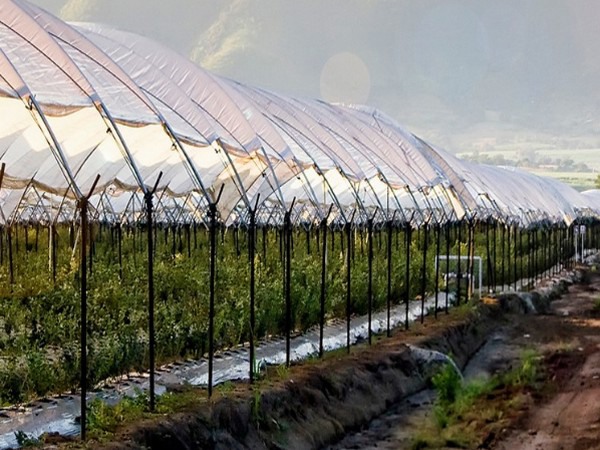Supplies of blueberries in North America are facing a few challenges currently.
“The Chilean volume is lower than in previous years resulting from labor shortages and a higher processing price, along with more stable pricing in the European market compared to the U.S. market,” says Ryan Lockman, vice-president of sales and procurement for Traverse City, MI-based North Bay Produce. “Add the holidays and we are seeing industry wide challenges in the blueberry category for the next few weeks.”
 Blueberries are also shipping from farms such as this one in Argentina.
Blueberries are also shipping from farms such as this one in Argentina.
While the supplies are lower from Chile due to those labor issues, North Bay’s Peruvian blueberries have had some incremental increases in volume. “But it’s not enough to balance out the market,” adds Lockman. Along with those two countries, Argentina, Uruguay and Mexico are also currently shipping fruit.
Pricing could strengthen?
Not surprisingly, markets are strong for blueberries at this time of year.
“Consumption will remain good as long as unit prices stay sensible/moderate,” says Lockman. He notes that pricing in December was comparable to pricing in December of 2020 and January 2022’s pricing could possibly increase over last year’s prices.
 Left to right: Ryan Lockman; Ruy Barbosa, Chile country manager at a farm in Chile.
Left to right: Ryan Lockman; Ruy Barbosa, Chile country manager at a farm in Chile.
While labor and logistic issues challenge blueberry movement for the next few weeks, looking ahead, North Bay sees much better volumes coming in February once both Chile and Mexico’s supply increases. “When Florida starts up our domestic production in the beginning of March, it should stabilize the market going into the spring,” says Lockman.
 For more information:
For more information:
Sharon Robb
North Bay Produce, Inc.
Tel: +1 (231) 946-1941
srobb@northbayproduce.com
www.northbayproduce.com
